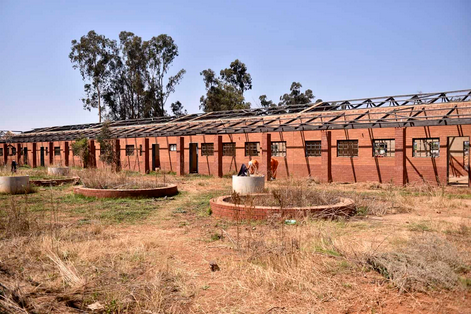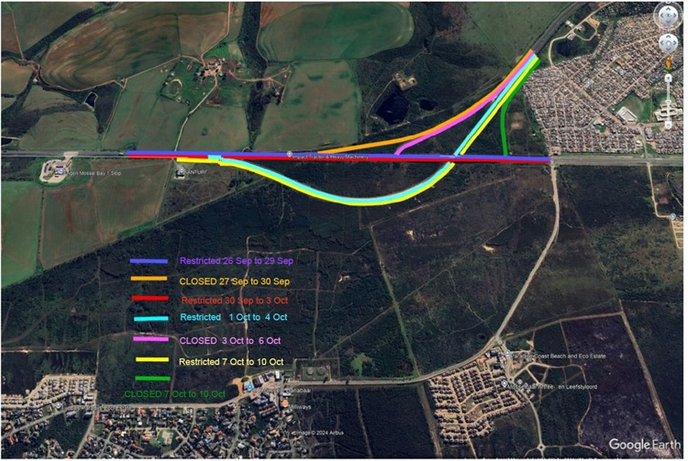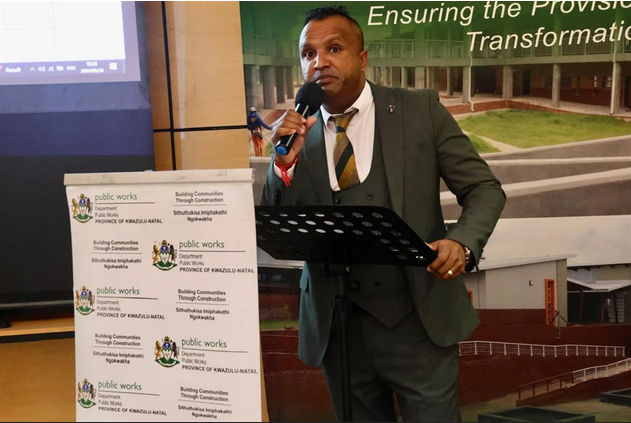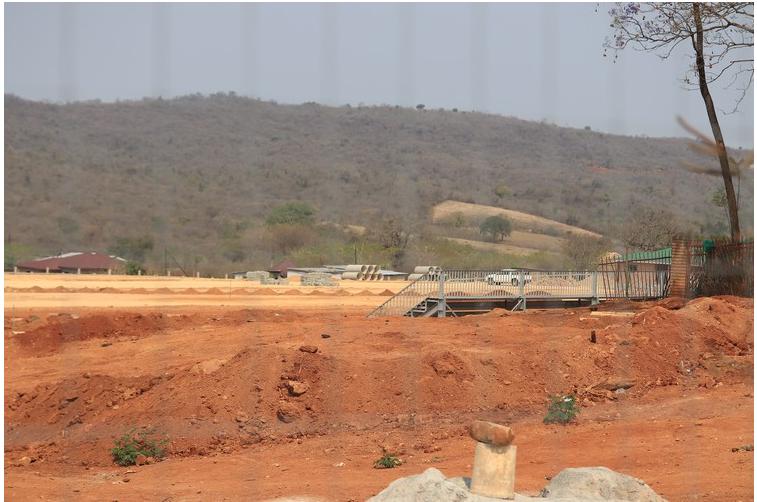Part of the Craigavon sewerage project being worked on

Advertising
14-07-2025
Read : 126 times
Central News
Source
Officials from the City of Cape Town have undertaken temporary pothole repairs in Gugulethu, Manenberg and Newlands, as wet conditions persist. This initiative comes amid ongoing heavy rains that have worsened road damage and flooding across the city, prompting urgent action to keep motorists safe during the winter months.
Winter Rains Exacerbate Pothole Formation and Road Hazards
Heavy and persistent rainfall during Cape Town’s winter season has led to a surge in potholes, as water seeps into existing cracks on road surfaces, causing them to widen and deepen. These defects not only damage vehicle tyres but also contribute to accidents, posing serious risks to drivers, passengers, and pedestrians. Rob Quintas, the City’s Mayoral Committee Member for Urban Mobility, explained the process during a site visit this week: “During winter, and as a result of heavy and ongoing rains, water seeps into cracks on the road surface. These cracks widen, and turn into potholes that damage tyres and cause accidents.”
The repairs, carried out on Wednesday, 9 July 2025, involved the City’s Roads Infrastructure Management team using cold mix asphalt to fill the potholes temporarily. Quintas joined the team to oversee the work in these affected areas, highlighting the challenges posed by the weather. “Permanent pothole repairs require dry, warm conditions, thus during the wet months, we have to do cold mix asphalt repairs. In summer, we will return to monitor the performance of the cold mix and do permanent repairs with hot mix asphalts, where needed,” he said.
Cold mix asphalt, a blend of aggregates and emulsified asphalt that can be applied at ambient temperatures, is ideal for quick fixes in wet or cold weather. It does not require heating and can be stored for extended periods, making it cost-effective for emergency repairs.
However, it is less durable than hot mix asphalt, which is heated to over 300 degrees Celsius and provides a stronger, longer-lasting bond suitable for high-traffic areas. While cold mix serves as a temporary solution to prevent further deterioration, hot mix is preferred for permanent fixes in warmer months, offering superior resistance to wear and weather.
Flooding Worsens Due to Illegal Dumping and Greywater Issues
Beyond potholes, excessive mountain run-off has caused flooding in low-lying areas like Gugulethu and Manenberg, where illegal dumping of household items into stormwater drains has blocked waterways and intensified the problem. Recent storms have displaced thousands in informal settlements, with homes destroyed and roads turned into rivers. The City has reported that illegal cross-connections and the dumping of greywater – wastewater from baths, laundry, dishes, and car washing containing detergents and chemicals – further damage road surfaces by eroding the asphalt and creating more cracks.
Quintas urged residents to play their part: “Another issue is illegal outlets or the dumping of greywater which contains chemicals that damage road surfaces and causes potholes. This greywater contains detergents and comes from baths, clothes, dishes and car washing.
Our teams are working hard to clear blocked drains and keep roads safe this winter, but we need your help. Please dispose of greywater properly through the sewer system so it can be treated and re-used, and keep it off our road surfaces. Together, we can reduce winter flooding and prevent the forming of new potholes.”
The impact of these issues extends beyond inconvenience, contributing to broader safety concerns. In the Western Cape, 23 people lost their lives in 23 separate road crashes between 30 June and 6 July 2025, including 15 pedestrians, four drivers, three passengers, and one cyclist. Provincial authorities expressed concern over drunk driving, with 57 arrests made during that week, alongside poor road conditions exacerbated by rain and potholes. These fatalities highlight the deadly consequences of neglected infrastructure, with slippery surfaces and flooding increasing the risk of vehicles losing control.
Broader Context: South Africa’s Pothole Crisis and Cape Town’s Response
South Africa’s roads face a nationwide crisis, with over 120,123 potholes officially logged through public reporting apps, though this figure likely underrepresents the true extent. Poor workmanship, inadequate maintenance, and extreme weather have led to 80% of the country’s roads exceeding their 20-year design life, resulting in a massive backlog estimated to cost billions to address. Potholes and uneven surfaces are major contributors to accidents, with claims for vehicle damage surpassing R15 million paid out in the 2024/2025 financial year alone. In many cases, drivers swerve to avoid potholes, leading to head-on collisions or loss of control, turning minor defects into fatal hazards.
In Cape Town, the City is tackling this through significant budget allocations in its 2025/26 ‘Invested in Hope’ plan, which includes over R3.4 billion for road upgrades over three years and R2.1 billion in operational funding for maintenance this year. This forms part of a record R39.7 billion infrastructure investment, prioritising road resurfacing, public transport, and congestion relief to keep the city moving. Initiatives like all-female repair teams in areas such as Heideveld demonstrate inclusive approaches to road maintenance, while ongoing efforts to clear illegal dumping aim to prevent future flooding.
The City also encourages proactive reporting to facilitate swift responses. Residents can log flooding, potholes, or blocked drains via the City’s call centre at 0860 103 089, the City App, or email at transport.info@capetown.gov.za. Immediate reports of issues like blocked drains or illegal dumping help teams respond faster, reducing the severity of winter impacts.
Recent News
Here are recent news articles from the Building and Construction Industry.
Have you signed up for your free copy yet?









